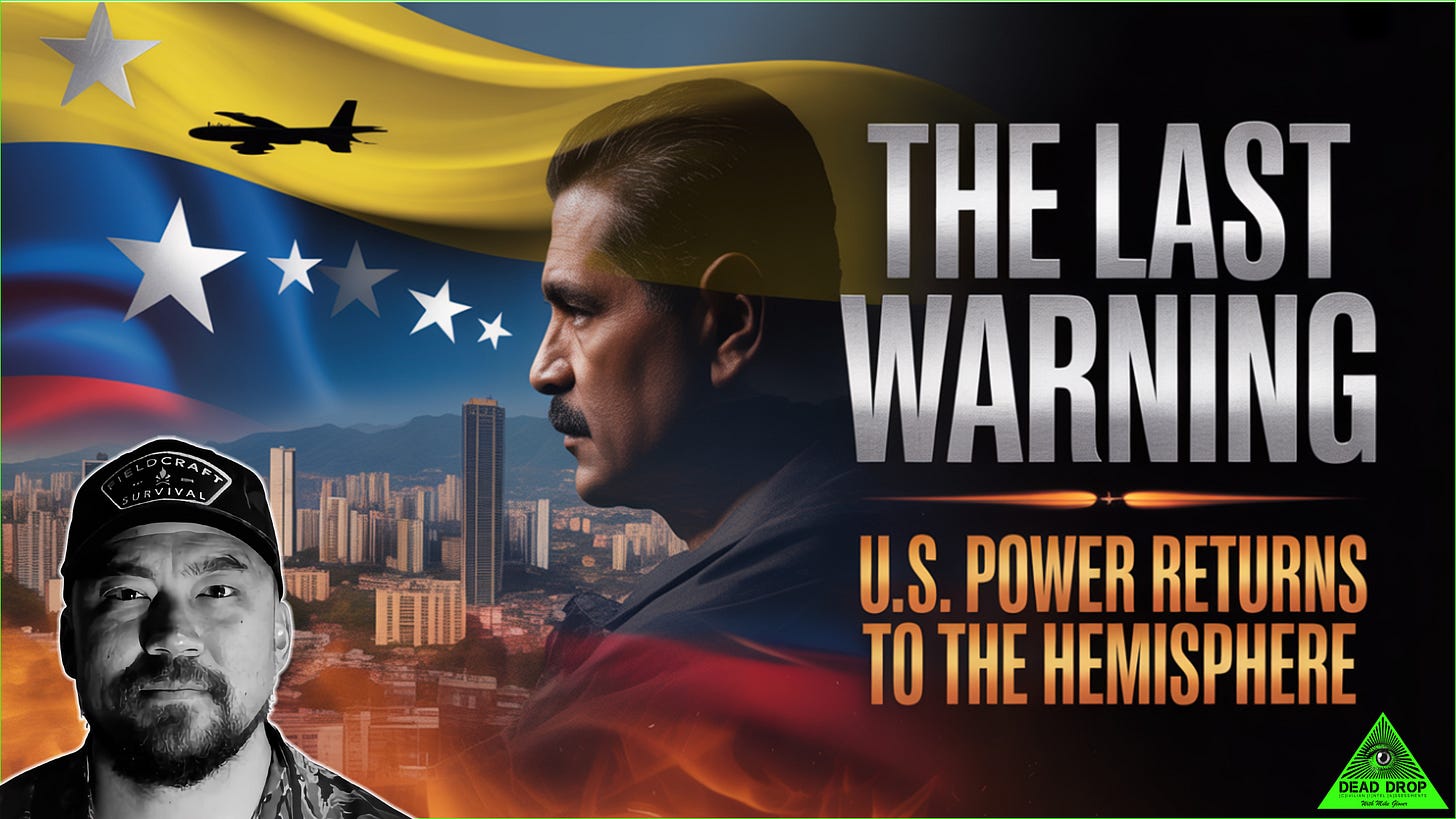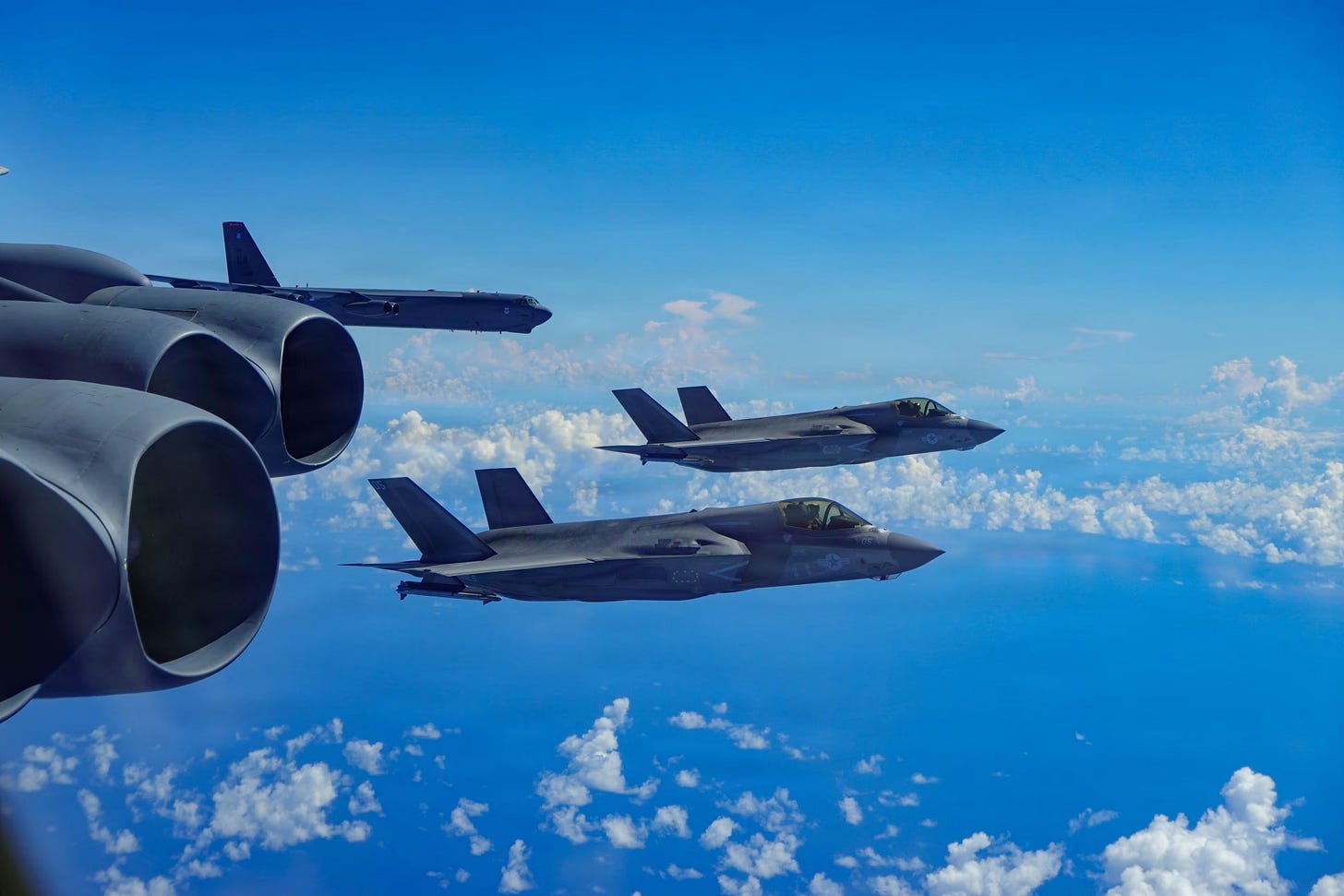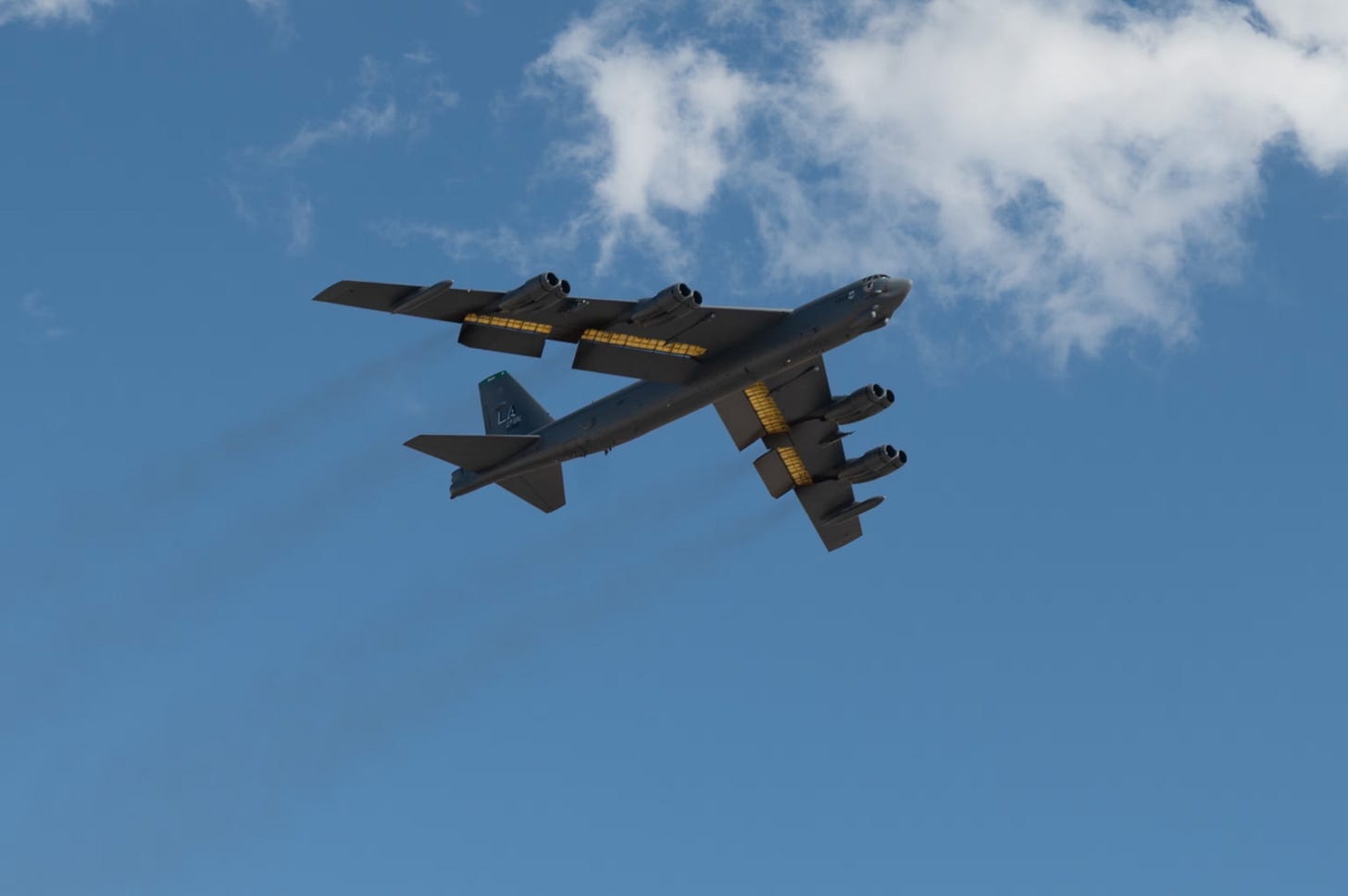The Venezuela Directive & the Domestic Threat It Reveals
A Defining Moment in U.S. Foreign Policy
President Trump’s recent order directing the Department of War to fly B-52 bombers over Venezuela represents one of the most aggressive American foreign policy decisions in decades. It is more than a show of force. It is a declaration that the United States will no longer tolerate criminal regimes that operate as international cartels. The administration has also authorized covert operations to destabilize and remove Nicolás Maduro from power, marking a new phase of American engagement in the Western Hemisphere.
DISCLOSURE: This post contains affiliate links. If you make a purchase through them, we may earn a small commission at no extra cost to you. This helps keep our work independent. Thank you for your support.
The Global Drug War and Venezuela’s Role
For years, Venezuela has operated as a hub for narcotics, trafficking routes, and money laundering that directly impact American communities. U.S. officials have long accused the Maduro regime of working hand in hand with cartels and terror-linked organizations. The administration’s directive reframes Venezuela not as a failed socialist experiment but as a central node in an international criminal enterprise that kills Americans every day through the drugs that cross the southern border.
The Domestic Connection
This new strategy is not limited to foreign soil. It reflects a growing recognition that the threats the United States faces abroad are directly tied to the chaos at home. The cartels that move narcotics through Venezuela and across Latin America are the same networks that have infiltrated American cities through the open border. Alongside this are jihadist elements who have entered the country undetected and radical domestic groups such as Antifa that thrive in the confusion. The administration’s argument is simple: national security abroad cannot be separated from national security at home.
For years, the political narrative labeled “white nationalists” as the primary domestic threat. Yet the reality on the ground, according to multiple intelligence sources, shows a far more complex and dangerous web of enemies. Cartel infiltration, extremist cells, and anarchist networks have created an environment where traditional law enforcement alone is not enough. The Venezuela directive is, in part, an acknowledgment that America is now facing an asymmetric war that begins at the border but ends in the heart of its own cities.
The Regional Fallout
The decision to flex military power over Venezuela has already rippled through South America. Colombia faces renewed instability as U.S. pressure intensifies. Trinidad and Tobago, long reliant on Venezuelan energy, may soon be forced to pick a side. Smaller nations in the region will either align with the United States or risk being pulled into the orbit of cartels and authoritarian influence.
Historical Parallels
The boldness of this moment recalls previous American interventions, yet the intent is fundamentally different. Critics see echoes of Cold War brinkmanship, while supporters call it overdue realism. Where past presidents relied on diplomacy and sanctions, this administration has chosen decisive action. The strategy resembles the direct, force-based clarity that once defined U.S. dominance during the post–World War II era.
The End of Negotiation
President Trump made it clear that this is not about negotiation or resource exchange. When asked about Venezuela’s reported offer of its natural resources to the United States, he stated that the time for deals has passed. The focus is now on eliminating the criminal infrastructure that funds terror, destabilizes governments, and poisons the American people.
If this information helps you, please consider a paid subscription …
A New Doctrine for a New Era
The Venezuela directive represents a merging of foreign and domestic policy under one philosophy of strength and deterrence. It signals that America will confront transnational threats wherever they exist, whether in South America or within its own borders. The bombers over Caracas are not just a message to Maduro. They are a warning to every cartel boss, foreign sponsor, and extremist group that America’s era of appeasement is over.
Godspeed,
Mike Glover
Founder







If nothing else, I think we can all agree President Trump is not afraid of waving those gigantic balls of his around the world. Now, if he would just realize the terrorist threat in our own country needs HUGE force to be shown ASAP.
I will fight for my family & my country no matter the cost. As Sarah always says, "Stop thinking like a Westerner."
Thank you President Trump! From a Canadian mother who recently lost her son to a poisonous drug. He left behind three children, his brother and sister. We are all going to miss him forever. Too many parents and children are grieving for too long!